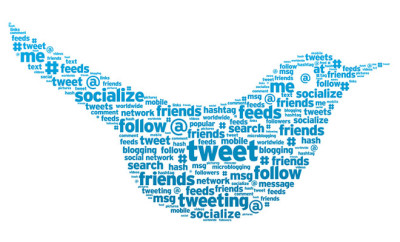
Unleashing Your Real Self
One of the perennial questions of philosophy and psychology (as well as theology and perhaps some other disciplines) is that of the self. This is also a major concern for Self-Actualization Psychology. After all, it is the self that we seek to actualize, make real, and unleash for its full potentials. This raises lots of questions.
- What is the self?
- Is there a real self within?
- Is the self born a blank slate so that we can make anything of it that we desire?
- Or is there a real self with its own unique tendencies and predispositions to be actualized?
- Is the self real or entirely a matter of human construction?
Philosophically, Behaviourism and many philosophers accepted the blank slate idea, believing that they could take a child and make it whatever they wanted. The founder of the school of Behaviours, Watson, put it starkly as did Skinner when each said that they could take a child and make it an engineer or psychologist, teacher or farmer, technician or nurse, etc. They believed that human development and expression was entirely a matter of learning, social conditioning, and environmental fashioning.
As a trained Behaviourist, this was the beginning point for Maslow.1 But then he changed his mind. How did that happen? When? What triggered it? He tells about the change in The Farther Reaches of Human Nature.
“Our first baby changed me as a psychologist. It made the Behaviourism I had been so enthusiastic about look so foolish that I could not stomach it any more. It was impossible.” (p. 163)
As he recognised that babies come with an inner self or inner nature, the over-simplicity of the Behaviourist model would no longer do. As this new understanding grew, he later wrote the following as recorded by Edward Hoffman his biographer in The Right to be Human: A Biography of Abraham Maslow (1988).
“Man is ultimately not moulded or shaped into humanness. . . . The environment does not give him potentialities and capacities; he has them in inchoate or embryonic form, just exactly as he has embryonic arms and legs. And creativeness, spontaneity, selfhood, authenticity, caring for others, being able to love, yearning for truth are embryonic potentialities belonging to his species-membership just as much as are his arms and legs, brain and eyes.”
(p. 232, italics added)
Finding the Real Self
- If there is a real self within each of us, how do we find this self?
- How do we allow this self to develop, grow to its full potentials, and unleash it?
- And if there is this inner real self, what are the things that hurt it, violate it, squelch it, or diminish it?
Maslow called this exploration “the search for identity.” And, tapping into what others in the human potential movement were writing and discovering, this became one of the key principles or premises of Self-Actualization Psychology. And in the measurement tool of the POI (Personal Orientation Inventory) for measuring self-actualization, the very first and most important variable was being inner directed rather than outer directed.
In Neuro-Semantics and NLP we talk about this in terms of a meta-program.2 We speak about this using the language of internally referencing with an external check. This means that there is within you an inner gyroscope of awareness and “sense of self”—your values, beliefs, understandings, etc. so that you move through the world true, or congruent, or authentic to and with yourself, rather than living vicarious off of the visions, values, beliefs, etc. of others.
The phrase “with an external check” balances the inner directedness of your real self with the ability and orientation to check outside with others to see how your inner directedness relates and connects with others. This enables you to receive input from the outside, feedback about what works and what does not, and to be able both to learn from others and to care for others.
Inner directedness, or being internally referent, means that as we grow we bring the “locus of control” (our circle of power for choosing and responding) inside ourselves rather than keep it outside. This locus or circle of control refers to where we look for “authority.” At first, authority is outside. After all, at birth we don’t know anything. We can’t even speak. We have no ability for abstract thinking. So we look outside for support, learning, instruction, etc. We look outside to discover what things are, how things work, what we need to do, etc.
Over time, with growth, development, learning, we slowly bring the circle of control as our inner responsibility and authority within. We call this process individuating, becoming autonomous, and assuming increasingly more responsibility for ourselves. Instead of living dependently off the thoughts, ideas, decisions, values, visions, etc. of others, we develop our own. And this creates our own sense of self and right to be us. We accept the right to decide, to use our mind to believe, to use our voice to speak and assert our views and opinions, to exercise our responses to act on our values and to be responsible for what we say and do. We become the author of our own lives.
Now the adult who is not able to do this lacks a strong sense of self, and may even in an extreme instance lack any sense of self. This is not good. It will undermine self-value, self-esteem, self-confidence, ego-strength to face the world, adult responsibility, independence, and many other positive traits and qualities of developing and maturing. Without this ability we end up experientially empty—dependent, needy, insecure, unable to cope, etc.
Maslow described such individuals as “experientially empty people” and described their kind of life in the following way:
“In experientially empty people… people who do not know what is going on inside themselves and who live by clocks, schedules, rules, laws, hints from the neighbours— other-directed people—this is a way of discovering what the self is like. There are signals from inside, there are voices that yell out, ‘By gosh this is good, don’t ever doubt it!’ This is a path, one of the ways we try to teach self-actualization and the discovery of self. The discovery of identity comes via the impulse voices, via the ability to listen to your own guts, and to their reactions and to what is going on inside of you.” (1971, p. 171 italics added)
When we do not know what’s going on inside ourselves, we are in an unresourceful state and one in which we are “lost” about what to think, what to do, how to be, etc. Of course this arises from the one and self-same exciting and disturbing fact: as human beings we do not have content instincts as the animals do. We do not have content information in our genes telling us how to be human. That’s something we have to learn.
Yet while we do not have content information in our genes, we do have instinctoid impulses. These are leftover or remnants of “instincts” or what Maslow called “our inner voices.” What we do have are tendencies, predispositions, potentialities, and preferences. Yet the “voices” of these factors are very quiet and soft voices. These are voices so soft, in fact, that they can easily be drowned out by the voice of culture, religion, education, parents, teachers, media, and so on. The outer-directed person lives a life experientially empty on the inside, by focusing on the voices outside.
The outer directed person looks outside and so lives by ‘clocks, schedules, rules, laws, hints from neighbours,’ etc. The right or authority to live, to act, and to be is posited as outside rather than inside.
Finding and Unleashing the Inner Voice of your Real Self
Maslow said that if we turn inward and listen to our inner voices, we will slowly discover what our self is like. We will discover our real self. We will discover our real identity and as we then follow those voices, we learn to become real, authentic, and fully ourselves.
“What do we mean by the discovery of identity? We mean finding out what your real desires and characteristics are, and being able to live in a way that expresses them. You learn to be authentic, to be honest in the sense of allowing your behaviour and your speech to be the true and spontaneous expression of your inner feelings. Most of us have learned to avoid authenticity. You may be in the middle of a fight, and your guts are writhing with anger, but if the phone rings, you pick it up and sweetly say hello. Authenticity is the reduction of phoniness toward the zero point.” (1971, p. 176)
There’s a force that we have to resist in the process of discovering our real identity, and that is the force of culture. So while we become human through being culturalised so that our mind, emotions, speech, and behaviour is cultivated to the values of our parents and teachers, to develop to our full potential we have to simultaneously learn to wear our conventionality lightly so that we learn to choose what parts of the outer world to bring in and what to merely adapt to, and what to reject. If we conform blindly and unthinkingly to the cultural rules of family, religion, school, media, business, etc., we dull our individuality and avoid authenticity.
Maslow had another word for this which I really like. He called this “human domestication.” If we do not personally integrate what we choose from the offerings of our culture, education, and development, and just blindly conform, we become domesticated humans—slaves to whatever cultural system we happen to be living in. And this will make us less human, less real, less authentic, less congruent, less ourselves. We will be merely clones of some system of thought. It’s not a very pretty perspective, is it?
So how do we individualise within our cultures and learn to become ourselves, our fullest selves to actualize our highest and best selves? The keys to this are a number of things:
1 Use your self-knowledge to discover your real self.
2 Choose your own values, beliefs, visions, etc.
3 Resist blind conformity to the external voices that pressure you to conform.
4 Quietly listen for your inner voices.
5 Discover the facts of what you are so you can know what you ought to do.
6 Bring your locus of control inside.
1. Discover Your Real Self
Self-knowledge is the ability to know yourself, to hear clearly the signals from inside. It is the ability to know your own inner preferences about things. Do you like this colour or that? This food or that? What fits best for you? We often lose this awareness because parents or others confuse us when they tell us that we really do like spinach or other things. We then become confused. We conform to get along, to stay out of trouble, to make things go better, but if the conformity is too blind, too unthinking, we end up losing ourselves.
To move toward full humanness, develop more awareness of your identity as a member of the human species and your identity as your unique form of this species. Here you need to become aware of what you are—biologically, temperamentally, constitutionally, as a member of a species, of your capacities, desires, needs, what you are best fitted for vocationally, and so on.
2. Choose Your Way
Are you willing to choose your own way? When you find it, when you sense it, when you hear your inner voices—are you willing to step out, to be different, feel weird, feel the risk of launching out to be you? This is required. Without the willingness to choose and act on the hearing of your inner voices and the things that best fit your constitutional self, there will be no discovery and no becoming your real self.
“People whom we describe as healthy, strong, and definite seem to be able to hear their inner-feeling-voices more clearly than most people. They know what they want, and they know equally clearly what they don’t want.” (Maslow, p. 176)
Many people lose the ability to hear their inner voices of their own impulses. Maslow wrote about some non-creative high IQ children who seem to have “lost their impulse voices and become domesticated.” He said that they look to parents and teachers for guidance and inspiration and don’t know how to provide their own guidance about what they want, or inspiration about what can inflame their dreams.
So, given our weak “instincts” we have to listen carefully for our inner voice. Here free association can enable us to begin hearing our small, delicate impulse voices. So, for Maslow, to discover your real self, you have to first discover your subjective biology. This means to answer the questions: What fits best for you? What do you prefer? Now while these are very simple steps, they begin you on the path to actualizing your best self.
This is our intrinsic education. And unlike external education, it essentially involves learning how to be a good chooser. And this is something you can teach yourself; you can teach yourself to choose for yourself, what you like, what you want. Using a glass of wine, Maslow said, simply take a taste and make your own choice, “I like it,” “I don’t like it,” “I like it a bit,” And make this choice without looking at the label! (p. 184). This will help you become the authority of your life’s script.
3. Resisting Blind Conformity
Conformity to one’s culture, one’s surroundings, one’s friends, family, colleagues, school, church, etc. is blind if you do not consciously and intentionally choose your responses. And most of us have blindly conformed to so much. Living in multiple cultures (family, school, church, education, language, “racial” group, business, economic status, etc.) means that so many of the choices that we have made were blind choices. We were blind to them when we made them and we are still blind to them.
So in resisting this we first have to wake up and notice the forces and influences for conformity. They are everywhere. They pervasively intrude into every aspect of our lives. Nor are they bad per se, they are often good. Yet being unconscious of them puts us in a position of passivity, rather than that of active choice. It means that our life script was written by others.
4. Quietly Listen to Your Inner Voices
The inner voices of your biological impulses are not loud voices. In fact, they are very quiet and soft— very soft. That’s why it requires that you quiet yourself. You have to take the time and effort to quiet yourself in order to hear that inner voice. That’s why to discover your real self you need time to reflect, meditate, and contemplate.
5. Move from Is to Ought
Maslow said that discovering your real nature is simultaneously both an ought and an is quest. (1971, p. 107). What is this ought—its distinction? How are we to understand it? Here are some of Maslow’s words of explanation:
“The questions that people ask in search for identity, real self, etc. are very largely ‘ought’ questions. What ought I to do? What ought I to be? How should I solve this conflict situation? Should I pursue this career or that one? Should I get divorced or not? Should I live or die?”
“Most untutored people are quite willing to answer these questions directly. ‘If I were you . . .’ They say, and then proceed with suggestions and advice. But technically trained people have learned that this doesn’t work, or is even harmful. We don’t say what we think another ought to do.”
Ought and is speaks about the requiredness of life. What is leads to and builds up the oughts in our lives. This fits with one of the Being-needs that Maslow mentioned, “necessity.” Now many think that once they get rid of the “necessity” language of childhood and culture, and become their own person, there will be no more “necessity,” no more “musts.” Not so. In fact, the freedom from the superficial, unconscious, and imposed necessities allows us to welcome the true necessities. Again, Maslow:
“What we have learned, is that ultimately, the best way for a person to discover what he ought to do is to find out who and what he is, because the path to ethical and value decisions, to wiser choices, to oughtness, is via ‘isness,’ via the discovery of facts, truth, reality, the nature of the particular person. The more he knows about his own nature, his deep wishes, his temperament, his constitution, what he seeks and yearns for and what really satisfies him, the more effortless, automatic, and epiphenomenal become his value choices. . . . Many problems simply disappear; many others are easily solved by knowing what is in conformity with one’s nature, what is suitable and right.” (p. 107).
6. Bring Your Locus of Control Into Yourself
When you think about doing something new, creative, out-of-the-ordinary, where do your thoughts go? When you think about having the right or getting the authority to do something, what comes to your mind? How do you represent the idea of authority? If you were to point to it, where is it?
If your thoughts go outside of yourself to an authority figure—to a parent, spouse, boss, ex-partner, or to statistics, books, etc., then there’s a strong probability that you operate from a meta-program of externally referencing authority rather than internally referencing it. If you are ready to change this, notice where you seem to put “authority.” It is often good to think of several instances involving different kinds of authority and/or people that you use for externally referencing.2
We all tend to put “time” outside of us, so that we can literally point to where the past seems to be and the future. So with “authority.” If you were to point to the source of authority, where do you point? Somewhere in front of you, above you, behind you, inside you, or where? When you have a sense of where it is, reach out and grab it and then slowly bring it into yourself.
Now, where do you want to put your own sense of personal authority? In your heart, stomach, head, or where? How well does it settle there within you? If it doesn’t settle well, check your permission frame. Do you have permission to be the authority of your own life? If not, then give yourself permission repeatedly, integrating any objections that might arise as you create a permission that is resourceful and that fits for you.3
Summary
Finding and becoming your real self is a lifelong adventure. Being real and being your real self is not a given and does not occur easily or quickly. It’s a matter of discovering, experimenting, time and error, etc. May the adventure of becoming and unleashing your real self be more exciting and rewarding with every day!
End Notes
1. Abraham Maslow earned his Ph.D. in Behaviourism and worked with leading Behaviorists during the first years of his work.
2. Meta-Programs are a model and domain of NLP. They are perceptual filters that govern how we see and colour the world. See Figuring Out People (2005) for an entire book on meta-programs.
3. See the article that I wrote about this on the website, the title is, “Owning Your Own Authority,” on www.neurosemantics.com.







